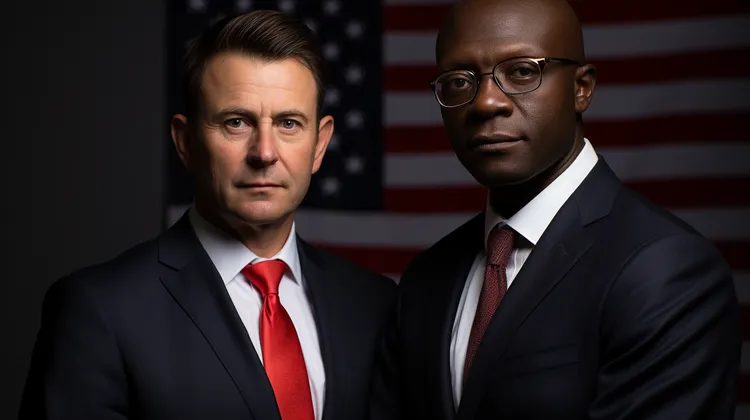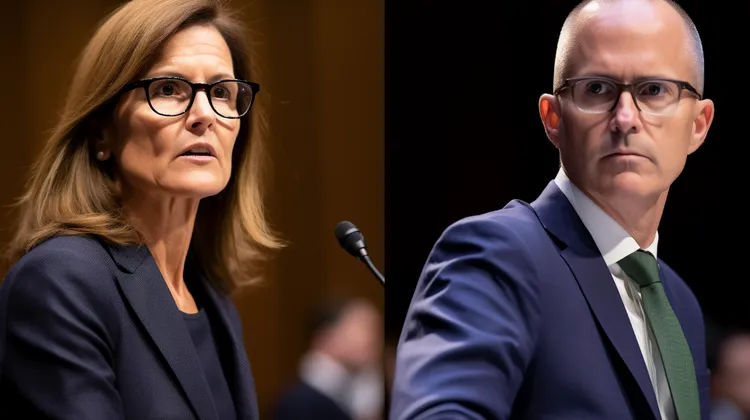—
Cryptocurrency has long been a polarizing topic, heralded by some as the future of finance and derided by others as a speculative bubble. Within this ever-evolving sector, personalities like Changpeng Zhao (CZ), the CEO of Binance, the world’s largest cryptocurrency exchange by volume, have attracted significant attention from both enthusiasts and regulators.
Arthur Hayes, the co-founder and former CEO of the BitMEX exchange, has been known to speak his mind on issues related to cryptocurrency. Recently, Hayes has targeted the U.S. treatment of CZ and his exchange, Binance, calling it ‘absurd.’ With a background in traditional finance and experience in the digital asset space, Hayes’s comments carry weight in the crypto community.
The United States has long been cautious in its approach to cryptocurrencies, emphasizing regulation to prevent money laundering, fraud, and other illicit activities. Binance, as a major player in the industry, has faced particular scrutiny due to its international footprint and substantial influence on the crypto markets.
Hayes’s use of the word ‘absurd’ may seem strong, but it underscores a tension that has been brewing for some time. Critics argue that U.S. authorities are excessively harsh towards Binance and perhaps towards the crypto sector in general. They point out that while regulation is important for ensuring stability and protecting consumers, overly stringent policies could stifle innovation and drive businesses offshore.
Part of Hayes’s frustration may stem from his perception that the U.S. government is applying a double standard. On the one hand, U.S. regulators are pressing hard on companies like Binance for compliance with securities laws. On the other hand, they are perceived to be less aggressive with traditional financial institutions, despite their history of violations and fines.
The situation with CZ is a case in point. The Binance CEO has been at the forefront of pushing for regulations that support the industry’s growth while offering protections for users. Yet, the company’s rapid expansion and occasional operational missteps have put it under the regulatory microscope, leading to the impression that U.S. authorities are somewhat prejudiced against the exchange.
This perception is compounded by the fact that the United States has its own burgeoning crypto market, with exchanges like Coinbase being seen as more compliant due to their adherence to stringent U.S. regulations from the get-go. Some argue that the U.S. authorities’ approach toward foreign-based exchanges like Binance could be part of a larger strategy to favor domestic players.
Hayes also points out the global nature of cryptocurrencies, emphasizing that U.S. policies tend to have worldwide implications. The reach of U.S. regulation often extends beyond its own borders through the influence it wields in global financial systems. This further amplifies the consequences of what he deems as absurd treatment of foreign crypto entrepreneurs like CZ.
Hayes highlights the speed of innovation in the crypto space – one where the regulations simply can’t keep pace with the rapid development of technology and new financial instruments. He suggests that instead of imposing outdated frameworks, regulators should work on understanding and creating a conducive environment for these modern financial tools.
This opinion speaks to a broader debate over how to integrate cryptocurrencies within the existing financial framework. Proponents like Hayes argue for a more balanced approach that allows innovation while addressing valid regulatory concerns, as opposed to what they see as fear-based or protectionist reactions.
The matter comes down to risks and benefits. While the U.S. government worries about the potential for cryptocurrencies to disrupt the financial system’s stability, figures like Hayes stress the potential of digital assets to bring about more inclusivity and efficiency in global finance.
At the heart of Hayes’s comments is a call for dialogue between regulators and industry leaders. He believes that by working together, they can develop a regulatory environment that not only mitigates the risks associated with cryptocurrencies but also harnesses their full potential.
The passionate words from Arthur Hayes wave a flag of concern over the U.S. treatment of Binance and its CEO, Changpeng Zhao. It reflects a continuous narrative woven by crypto industry leaders who see the U.S.’s rigorous stance as an impediment to innovation and global progress in financial technologies. Whether or not U.S. regulators will heed such calls remains to be seen, but what is clear is that, as the line between traditional and digital finance blurs, the conversations around regulation will only intensify. The hope is that in time, a middle ground will be found that reconciles the concerns of regulators with the ambitions of the crypto community.




Call it fear-based if you want, but when my hard-earned money is on the line, I’d rather be safe than sorry in a volatile market like crypto. Not everyone’s a high-flier. 💸🙏
Seriously, people still trust these shady crypto companies after all the scams? Wake up, it’s just modern-day snake oil!
Inclusivity and efficiency in finance are possible with crypto, Arthur understands this well! 👏💰
Absurd is the right word. It’s time for common sense regulations that promote growth, just like Arthur says. 🎯🌱
The passion Arthur has for creating a better crypto world is infectious. U.S. regulators, let’s get on board!
Dialogue is key and I’m glad Arthur is advocating for communication between crypto leaders and regulators. 📞🤝
Maybe instead of whining about regulations, these crypto bros should focus on building something that doesn’t fluctuate 20% in a day? Just a thought…
The crypto folks say it’s about “decentralization,” yet it seems more like a way to evade taxes and regulations. Not exactly noble. 🕵️♂️💰
These crypto companies love to talk the talk, but when things go south, good luck finding someone to answer for the mess. Ghosts in the machine. 👻😒
Arthur Hayes’s insights are a wake-up call for regulators around the globe. 🌍🛎️
Regulation is essential but shouldn’t kill innovation. Hoping for a change soon! 🔄🛡️
Hayes for president! Love that he’s pushing for rational policies in the wild world of crypto.
Arthur Hayes really hit the nail on the head! We need balance in crypto regulations. 📈👍
Cryptocurrency is just a bubble waiting to burst, and when it does, guess who suffers? The average Joe, not the CEOs.